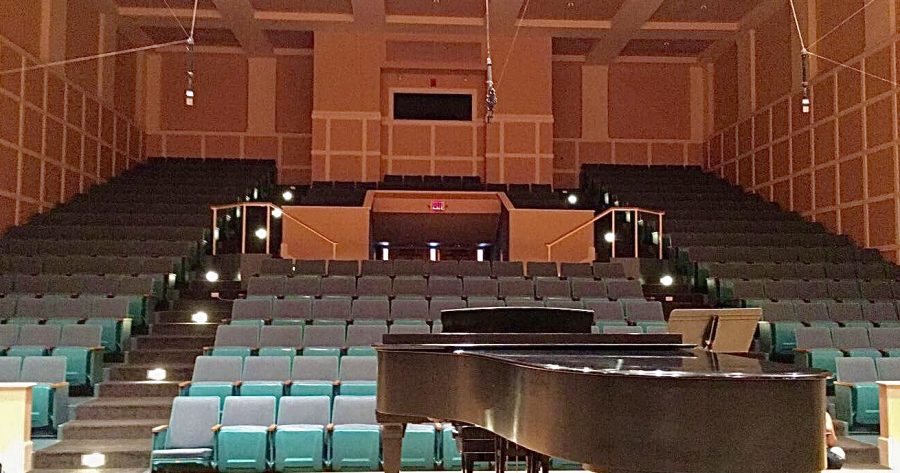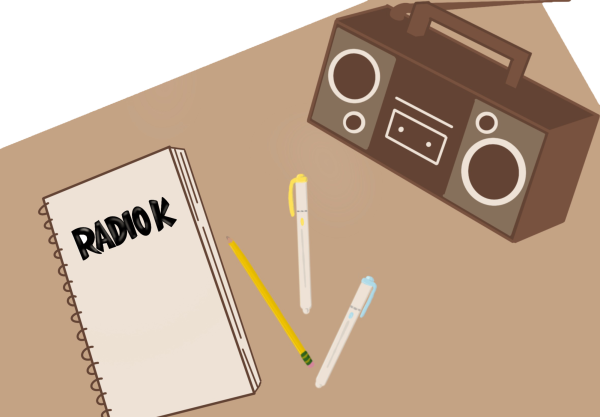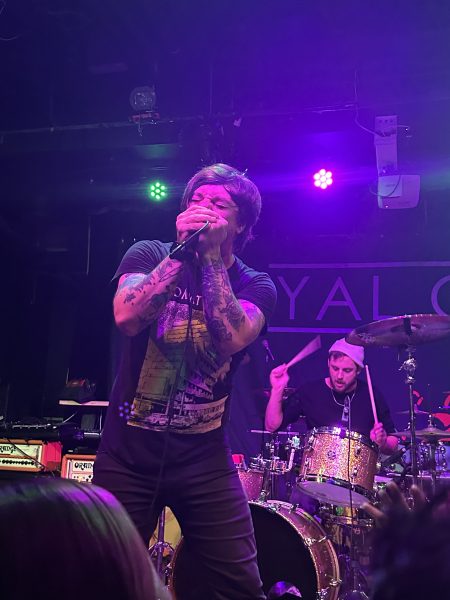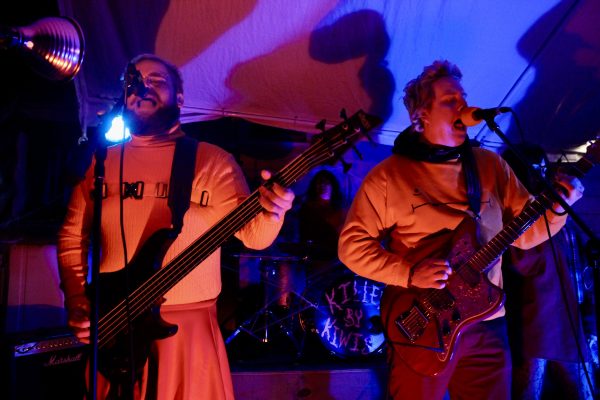It’s in the Bag: Music Department’s New Adjustments
We need music now more than ever, but how is it being taught while meeting COVID-19 guidelines?
With no crowds, Sundin Hall is left barren. Music continues at Hamline online and socially distant.
September 30, 2020
When students imagine joining a music class at college they tend to think of a choir, a band, an orchestra, concerts, the pit or even just a teacher and a student sitting together. COVID-19 has drastically changed how these programs can look.
“Doors closed here but they’re open somewhere else. We have to find where they’re open,” Professor Janet Greene, the chair of the music department, said. “My heart is broken, we can’t share our music [concerts].”
Classes have taken a mix of formats from in-person, hybrid and online. There has been a shift in focus from in-person performance to music literature, pedagogy, recording and listening skills. This new format requires more internal motivation for students. Greene encouraged students to take advantage of private music lessons, chamber ensembles and one-on-ones with professors.
“[It] thrusts the responsibility on the individual. Some students will thrive. Some students need the motivation of the group,” Greene said.
Silvester Vicic, Director of CEM and Sundin Hall, spoke about how he helped prepare Sundin for the new semester. The cables have been pulled into room 119 and there is a camera in the room that can pick up sound. This hooks up to the TV in Sundin to allow for a space that can interact with performers in a different room.
“There are options. [The] technology exists,” Vicic said. “People are working really really hard figuring out how to do everything.”
This is an option for the conductors to have a remote station, limiting the amount of people in one room, with groups being kept at no more than 10.
The music department is seeing its music production thrive. Students have been in small groups learning the software technology of the music industry. As well as small sizes, students have individual studio spaces with an abundance of sanitizing wipes. They’re able to use their own computers and flash drives for “in the box stuff.”
One interesting COVID-19 invention is called the Singer’s Mask. Developed by the Broadway Project in New York, a city with a thriving live music scene hit hard by the pandemic, it is essentially just a larger mask. It juts out farther than a regular mask, almost a box shape, and gives more room to breathe and sing. Greene commented on the absurdity of this new necessity.
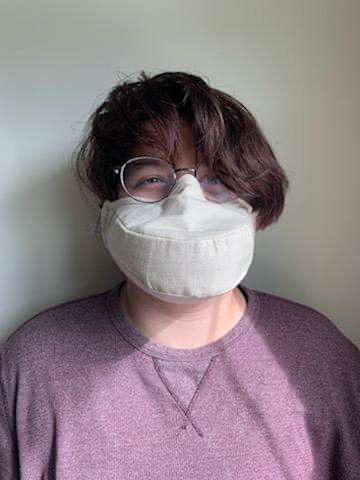
Oracle staff member, Julien Halabi, shows off singer’s mask worn during choir rehearsals.
“It looks like a horse feed bag but you gotta use it,” Greene said.
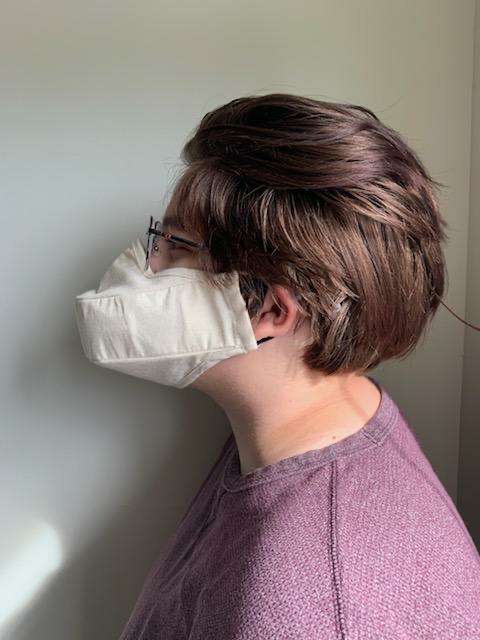
There has also been a new thing called a clarinet bag: a shield for clarinet players to minimize COVID-19 transmission. However those are expensive and may not be available to all clarinet players currently. During the interview, it was hard not to imagine these novel items sitting in a museum 50 years from now as strange artifacts of how humans managed to make music together in a pandemic.
Junior Noah Vue is taking the beginning voice class with Professor Deborah Carbaugh. The class is entirely online with a synchronous portion and weekly one-on-ones. Vue commented on issues with sound quality during virtual meetings, spotty wifi and the increased level of independence required for online music class. Despite the loss over concerts, Vue is still finding value in taking the course.
“It feels like a hobby, a way to express and it has been helping me,” Vue said.
According to Noah, students have been active during online discussions and really engaging in the conversation. His advice to students that are hesitant about taking COVID-era music classes: “Definitely take it. Don’t let the pandemic stop you. Continue to do your passion.”

